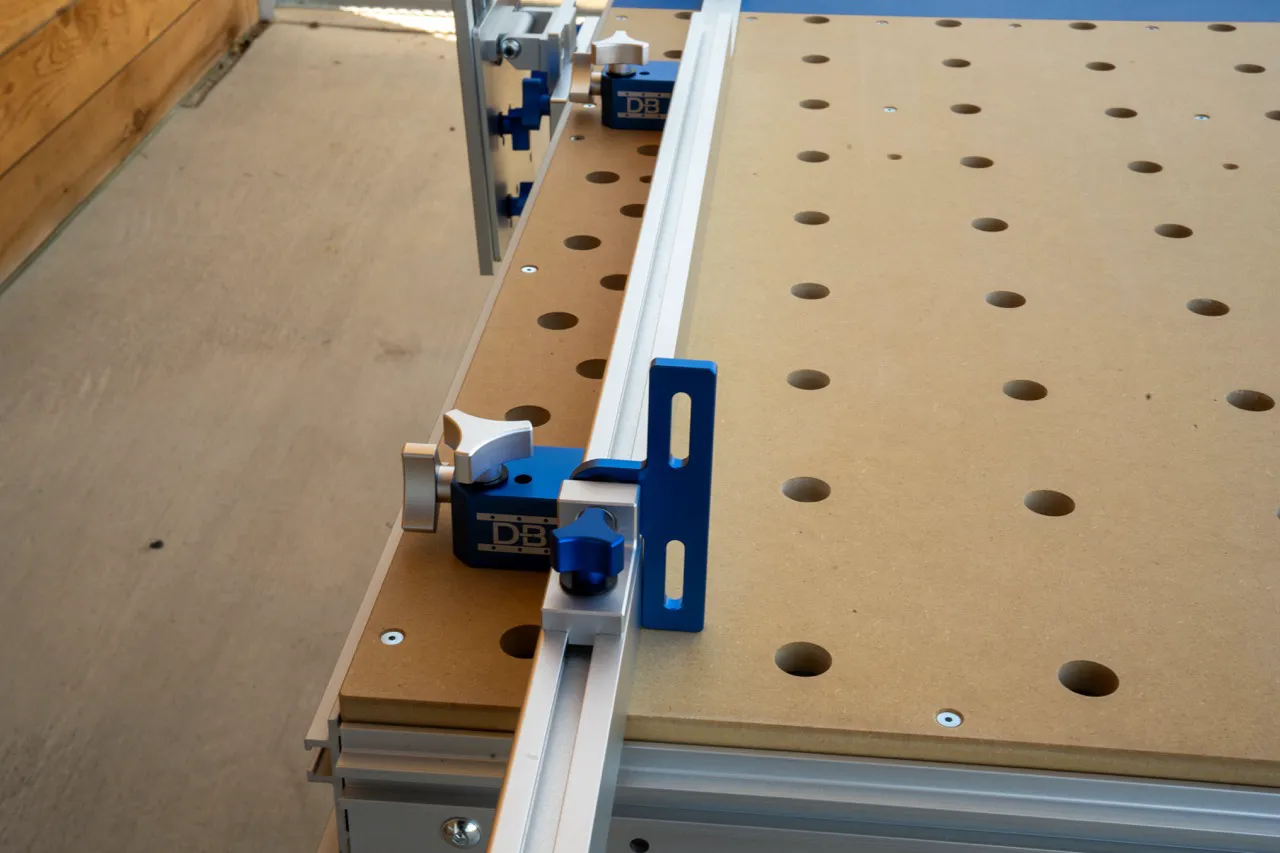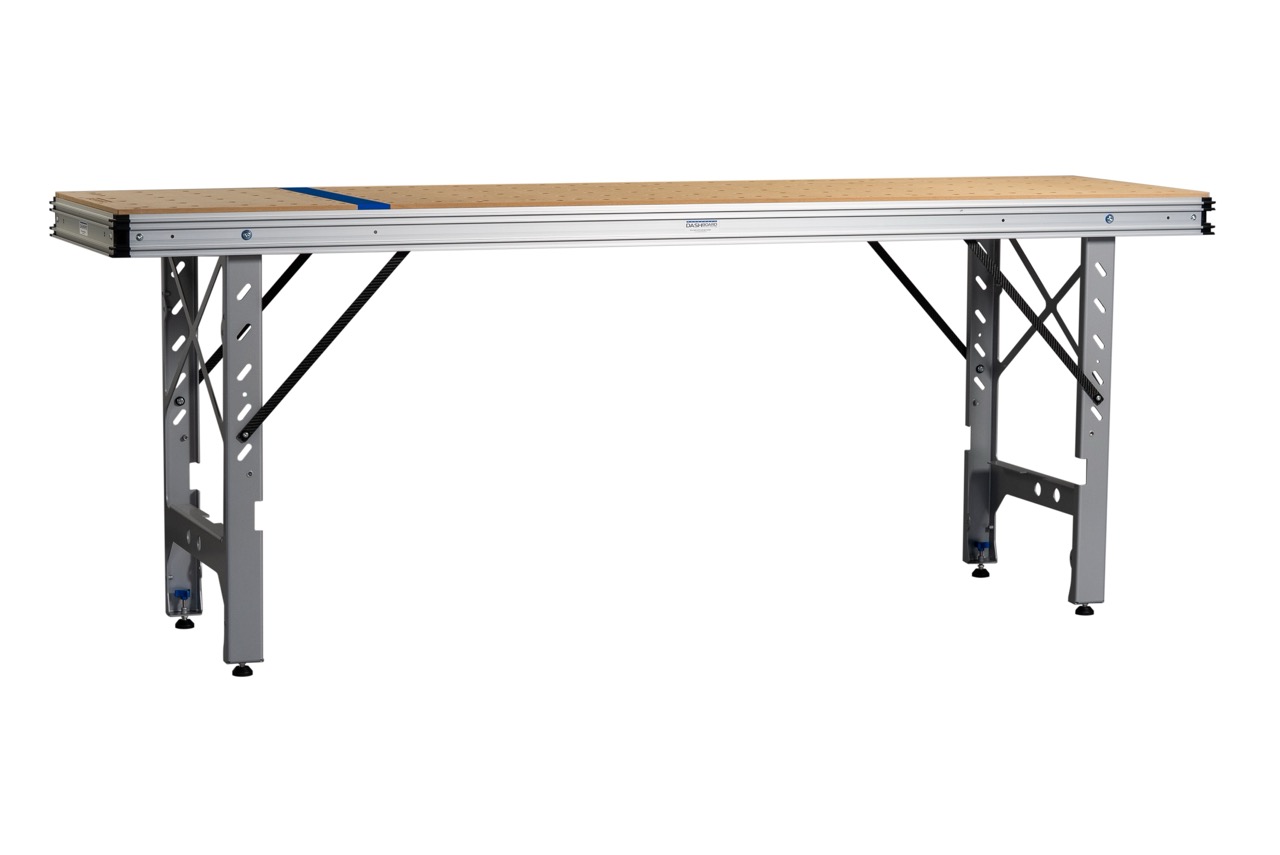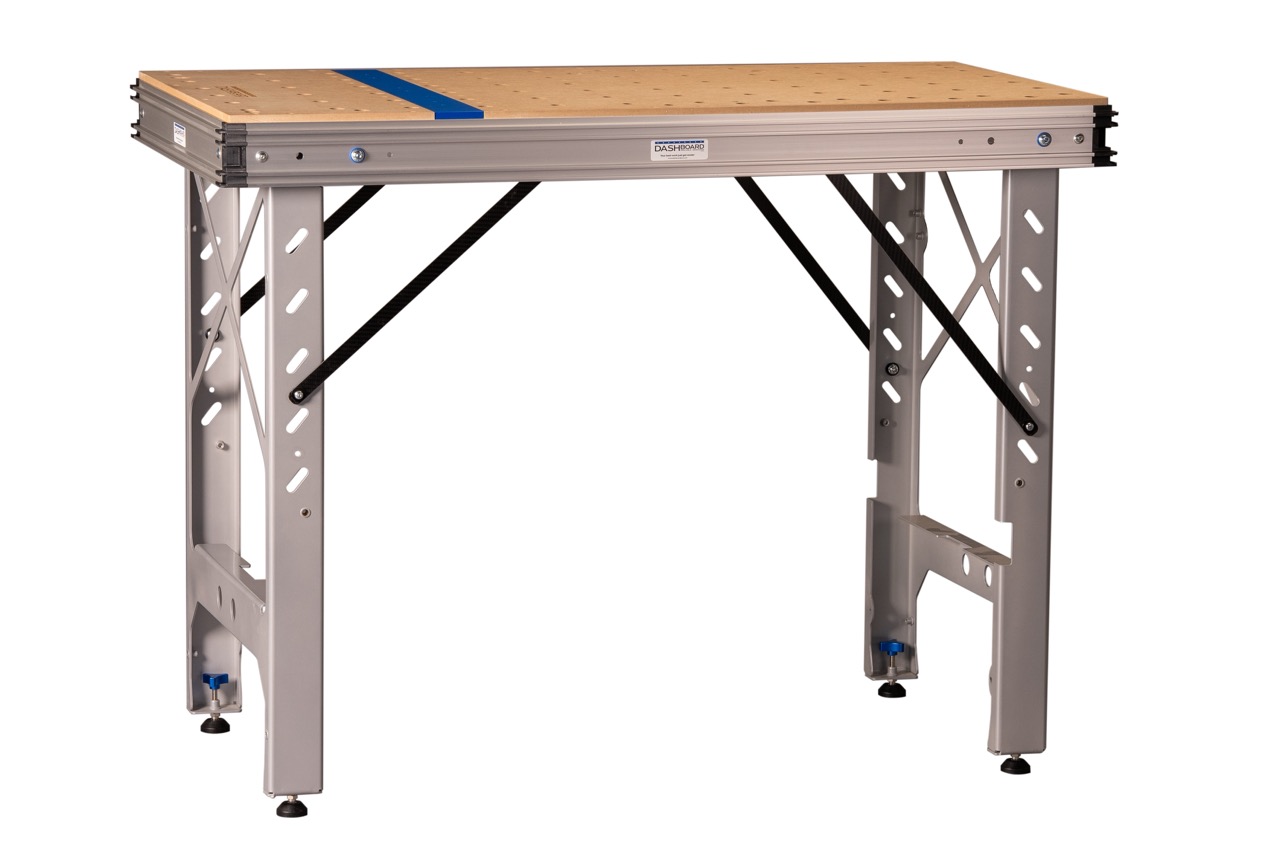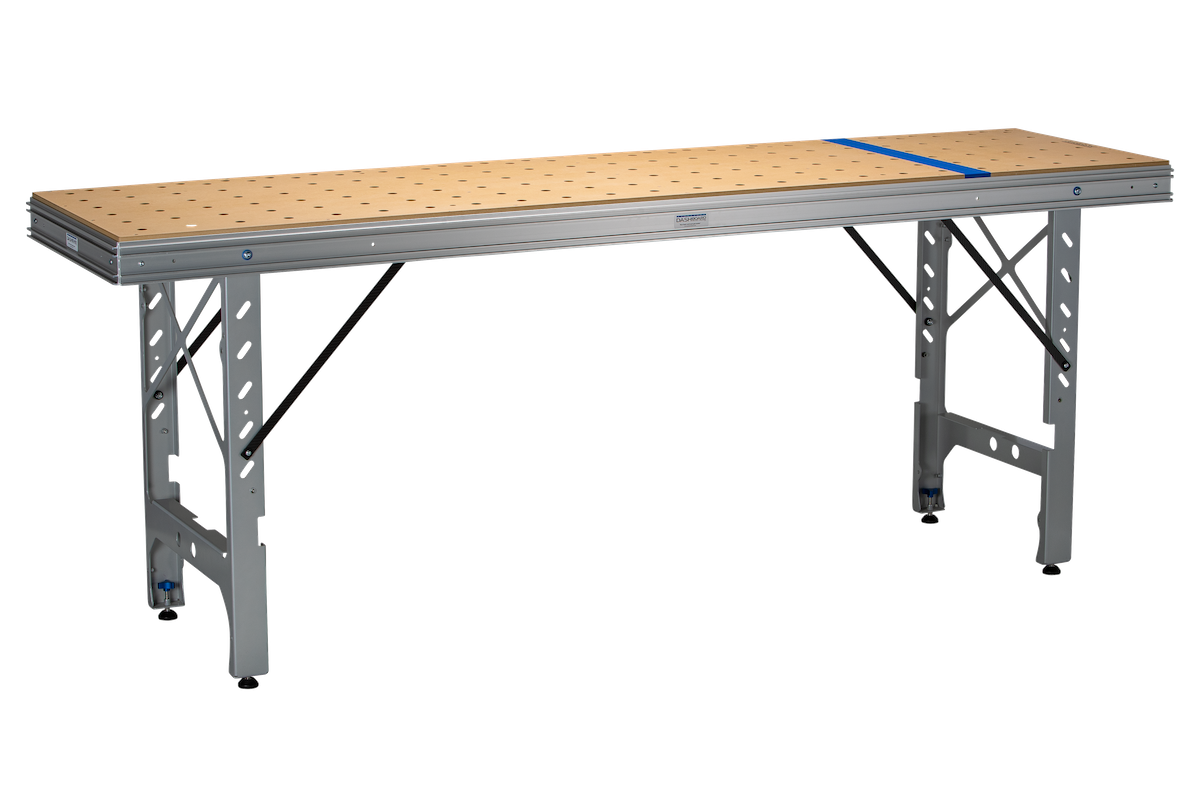TL;DR: Quick Setup Workbenches for Mobile Contractors
- Setup Time: Traditional sawhorses: 5-10 minutes vs. modern portable workbenches: 60 seconds
- Weight Difference: Plywood-and-sawhorse setup: 150+ lbs vs. engineered workbenches: 60-63 lbs
- Space Savings: Folded thickness 3.5" vs. traditional setup 12-18" storage depth
- Best For: Finish carpenters, cabinet installers, trim contractors working from vans/trucks
The 60-Second Promise: Why Contractors Are Abandoning Traditional Setups
Every morning, thousands of contractors waste 15-20 minutes setting up makeshift workstations.
Unloading sawhorses, finding level ground, wrestling with warped plywood sheets. Modern portable workbenches solve this by deploying in under 60 seconds, transforming any garage, driveway, or patio into a precision workspace without tools required for assembly.
The shift isn't about convenience—it's about economics. At up to $150/hour billable rates, saving 15 minutes per setup across 200 working days equals $12,500 in recovered productivity annually.
Weight and Transport: The Van Storage Revolution
Traditional Setup Burden
A typical job site setup weighs:
- Two sawhorses: 40-50 lbs
- 3/4" plywood sheet: 70-96 lbs
- Clamps and supports: 20-30 lbs
- Total: 130-176 lbs requiring multiple trips
Modern Portable Alternative
Engineered workbenches like the Dash-Board system weigh 62 lbs complete, folding to 3.5" thick. This single-trip solution fits behind van seats or against walls, leaving room for materials and tools.
Engineering the Quick Deploy: How 60-Second Setup Works
The speed comes from three engineering decisions:
- Integrated Folding Legs: Legs unfold and lock automatically, adjusting to uneven surfaces without shims.
- Pre-Aligned Work Surface: Unlike plywood that warps and requires constant checking, aluminum-framed surfaces maintain flatness. The 92.5" x 24.5" Dash-Board platform provides more usable area than standard 4x8 sheets while weighing 100 lbs less.
- No-Tool Height Adjustment: Twist-lock legs adjust from 35.5" to 36.5" working height, accommodating different tasks without wrenches or pins.
Precision Features That Matter

Integrated Track System
Modern portable benches include T-tracks and dog holes at precise 96mm spacing, enabling:
- Instant fence attachment for repeatable cuts
- Guide rail mounting without measuring
- Material stops that don't require C-clamps
Replaceable Cut Strips
The Dash-Board's two-piece top includes a reversible cut strip—flip it when one side wears, replace after both sides are used. This protects the main surface indefinitely, unlike plywood that's destroyed after 20-30 cuts.
Load Capacity Reality
Despite weighing 62 lbs, engineered aluminum construction supports 400 lbs distributed weight—matching or exceeding traditional setups.
Cost Analysis: When Portable Workbenches Pay for Themselves
Traditional Setup Yearly Costs:
- Plywood replacement (4x yearly): $400
- Sawhorse replacement: $150
- Time loss (15 min/day @ $150/hour): $12,500
- Total: $13,050
Portable Workbench Investment:
- Initial cost: $1,699 (Dash-Board example)
- Cut strip replacements: $50/year
- Time savings: -$12,500
- First Year Net: $10,751 saved
Real Job Site Applications
Trim Carpenter Scenario
Installing molding in a Victorian requires preassembly of multiple pieces cut at various angles. A portable workbench like the Dash-Board provides a flat surface and multiple clamping options to easily and securely hold multiple pieces during assembly and fitting.
Cabinet Installer Reality
Kitchen installs demand dust-free precision cuts. Setting up in driveways or garages, portable workbenches provide immediate clean workspace without contaminating client homes.
Renovation Contractor Efficiency
Moving between units in apartment complexes, the 60-second setup eliminates the biggest time drain—constant breakdown and setup of temporary workstations.
Space Optimization: Van Layout Strategies
Vertical Storage Method
Mount folded workbench (3.5" thick) against van wall using E-track system. This preserves floor space for materials while keeping setup at arm's reach.
Under-Shelf Integration
Slide folded bench under custom shelving units. The 24.5" width fits standard van shelving depths, maximizing cubic footage usage.
Quick-Release Mounting
Install pivoting brackets that hold workbench against ceiling during transport, dropping down for immediate deployment at job sites.
What to Look for in Professional Portable Workbenches

Non-Negotiable Features:
- Sub-70 lb total weight for single-person handling
- Folded thickness under 4" for van storage
- Minimum 24" x 60" work surface
- Integrated clamping/fence system
- Height adjustment without tools
Quality Indicators:
- Aluminum or steel frame construction (not plastic)
- Replaceable wear surfaces
- Load rating up to 400 lbs
- Available replacement parts
FAQ: Portable Workbench Realities
Can portable workbenches handle table saw weight and vibration?
Yes. Units like the Dash-Board support 400+ lbs distributed weight. The aluminum frame dampens vibration better than plywood-on-sawhorses. The key is ensuring legs are properly locked and adjusted.
How do they perform on uneven surfaces?
Individual leg adjustment compensates for 1" height variations. For extreme slopes, use shims under individual legs—same as traditional setups but faster to implement.
What about cutting full 4x8 sheets?
Portable workbenches excel here. Track saw integration and outfeed support accessories handle full sheets more safely than sawhorses. The 92.5" benchtop length accommodates standard materials.
Are they worth it for contractors who already own sawhorses?
Calculate your time value. At $100+/hour, saving 15 minutes daily pays for premium workbenches in 2-3 months. The precision features—repeatable cuts, integrated fences—add value beyond time savings.
How long do they last under daily commercial use?
Aluminum-framed units show minimal wear after 5+ years. Replaceable cut strips and wear surfaces extend life indefinitely. Compare to plywood replacement every 3-6 months.










.jpeg)